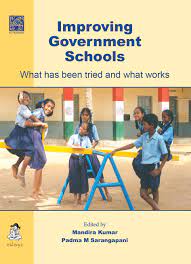Introduction
The education of students in a community is a priority, not only for parents and educators, but also for local authorities. Due to this importance, local authorities possess several powers and responsibilities related to the management of schools, which include maintaining the overall standards and quality of education. In this article, we will discuss how local authorities can utilize their powers to improve schools, ensuring every child has access to top-notch learning experiences.
The Role of Local Authorities in Education
Local authorities play a significant role in overseeing the quality of education within schools. Some of their responsibilities include allocating funding for resources, providing support services such as Special Educational Needs (SEN) provisions and safeguarding measures, and monitoring educational performance against national standards. Additionally, local authorities also hold schools accountable for their performance by publishing annual reports that measure student achievements against set targets.
Using Powers to Improve Schools
Local authorities have a range of powers at their disposal that can be used to bring about positive changes and improvements within schools. Here are some key ways they can approach school improvement:
1. Regular Monitoring: By consistently monitoring school performance through thorough site inspections, standardized testing data analysis, and annual reporting, local authorities can identify areas for improvement. This information can be used as the basis for targeted interventions aimed at addressing specific areas of concern and nurturing academic achievement.
2. Targeted Support: Local authorities may offer additional support to low-performing schools by providing resources and specialist guidance that address identified needs. Targeted support may come in the form of expertise in curriculum development or staff professional development programs.
3. Collaboration with School Leadership: Engaging in partnerships with school leadership is vital in fostering a shared vision for improvement. Through open dialogues and strategic planning sessions, school leaders can work closely with local authority representatives to develop comprehensive plans for enacting necessary changes with the aim of improving educational outcomes.
4. Capacity Building: Local authorities can support staff capacity by providing opportunities for ongoing professional development. This may include workshops, seminars, and training programs that focus on improving teaching techniques and expanding knowledge in specific subject areas.
5. Interface with Parents and Communities: Maintaining open communication with parents and local communities is crucial for aligning the expectations and goals of all stakeholders. Regular engagement through consultations, surveys, and information-sharing platforms can facilitate collaborations between schools and their communities to develop plans for improvement that have widespread support.
Conclusion
Although improving schools is a multifaceted and continuous process, local authorities hold significant powers that, when used appropriately, can contribute to positive change. Through consistent monitoring, targeted support, collaboration with school leadership, capacity building, and close engagement with parents and communities, local authorities have at their disposal a variety of tools aimed at enhancing the quality of education in schools. Ultimately, these efforts will benefit students through improved learning experiences, setting them on a path towards lifelong success





